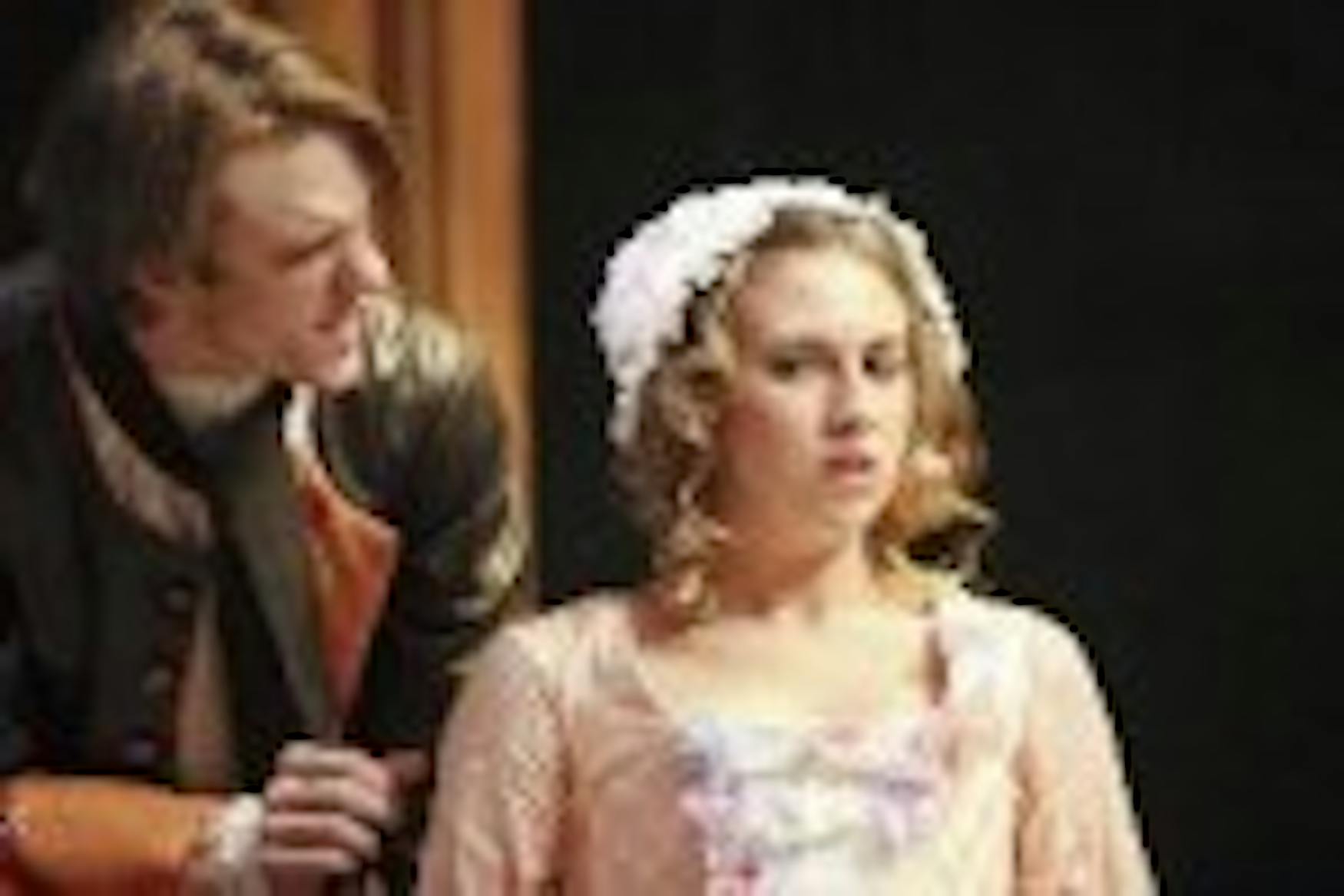Game' is partial loss
At least according to stereotype, the French are champions of bourgeois indulgence and consequently also champions of farces on the matter. The Game of Love and Chance, an 18th-century play by Pierre Carlet de Chamblain de Marivaux-"the most important French playwright of the Enlightenment," as proclaimed in the director's (Prof. Janet Morrison (THA)) note-currently running at the Brandeis Theater Company, champions this championship. Unfortunately, even with their iconic moments, champions are doomed to lose steam at some point. Game follows the mischievous scheme of bourgeois heiress Silvia (Samantha Richert (GRAD)), who compels her well-meaning father (Equiano Mosieri (GRAD)) to let her assume the role of her chambermaid, Lisette (Japonica Brown (GRAD)), when Silvia's prospective husband, Dorante (Johnnie L. McQuarley (GRAD)), comes to visit. Her father, Monsieur Orgon, concedes with little trouble, keeping a crucial detail away from his daughter: Proving that Silvia and Dorante are meant to be together (and that they are uncreative in the most bourgeois sense), Dorante has devised a similar plot, exchanging places with his valet, Harlequin (Levi Rion Ben-Israel (GRAD)). Oh, the mischief!
The play demonstrates that dress-up does little to conceal status, and apparently, playing pretend requires little method. That is, Silvia and Dorante (as their servant counterparts) keep up aristocratic proprieties and fall in love in a matter of seconds while maintaining a respectful distance, while Lisette and Harlequin drop formalities and share a moment of underling bitterness, exchanging a high five in their overblown "aristocratic" outfits.
McQuarley, as Dorante, establishes a domineering presence upon entering the scene, his voice booming and his chest almost always heaving, which provides the absurdity of his self-maneuvered role-reversal. McQuarley and Richert seem to have a connection-at least as much of a connection as they can have as they hustle back and forth, wrestling with their not-so-ill-fated-love-but their interactions grow tiring.
Lisette and Harlequin have more enticing elements in their relationship than the morally restricted Dorante and Silvia, highlighting several bourgeois assumptions. The occasional touching and sexual innuendos (such as their promise to love each other forever, including before their wedding) added a sincerity missing from their superiors' love story-servants have more fun, it seems. Also, unlike their mistress and master, the pair presented a tangible romantic conflict, their love story containing a more layered difficulty as they could be thwarted by their lack of status and opportunity. Dorante and Silvia's inevitable union brings together wealth and love while their servant couple remains at their posts with only the prospect of a cottage to look forward to. The added conflict and lack of high-class sensibilities propelled Ben-Israel and Brown to a more heightened connection as the actors shared entrancing eye-locked moments.
All the performances, including Jesse Hinson (GRAD) as devious brother Mario Orgon and Mosieri as Monsieur Orgon, proved to be engaging-but only to a point. Though full of wordplay, quips and silly bourgeois contradictions, the play left the cast in search of momentum to continue with its lengthy scenes whose significance was made within the first minutes. A balance could not seem to be struck: Worthy moments were followed by overzealous deliveries, and fitting motions were blown over by unnecessary mannerisms.
Game is a weighty task for any company with its subject, language and commentary rooted in the time period in which its set, affording little flexibility. However, that does not restrict a production to no stretching at all. The vibrant and detailed costumes were occasionally outfitted with anachronistic items such as sunglasses, and modern props were sometimes added-all of which were appropriate. But these tidbits were minor in their contribution.
Though often amusing, the BTC's rendition of Game seemed to take a misdirected cue from its characters. Much as Orgon knows that his daughter is suited for Dorante by their common ploy, we all know within a minute of the first conversation, 'tis but a farce, a farce! But what of it? The characters are rooted in external significance, but the actors seem unable to drive their outer selves into a developed inner being. Lisette and Monsieur Orgon's suspicious tender moments never amount to anything, and Mario seems to have little purpose other than to occasionally serve as a plot device. Though the cast members made valiant attempts to infuse dimensionality into their roles, The Game of Love and Chance proved too formidable a sport. The challenge of persuading the audience to become invested in the characters' outcome was not met.



Please note All comments are eligible for publication in The Justice.